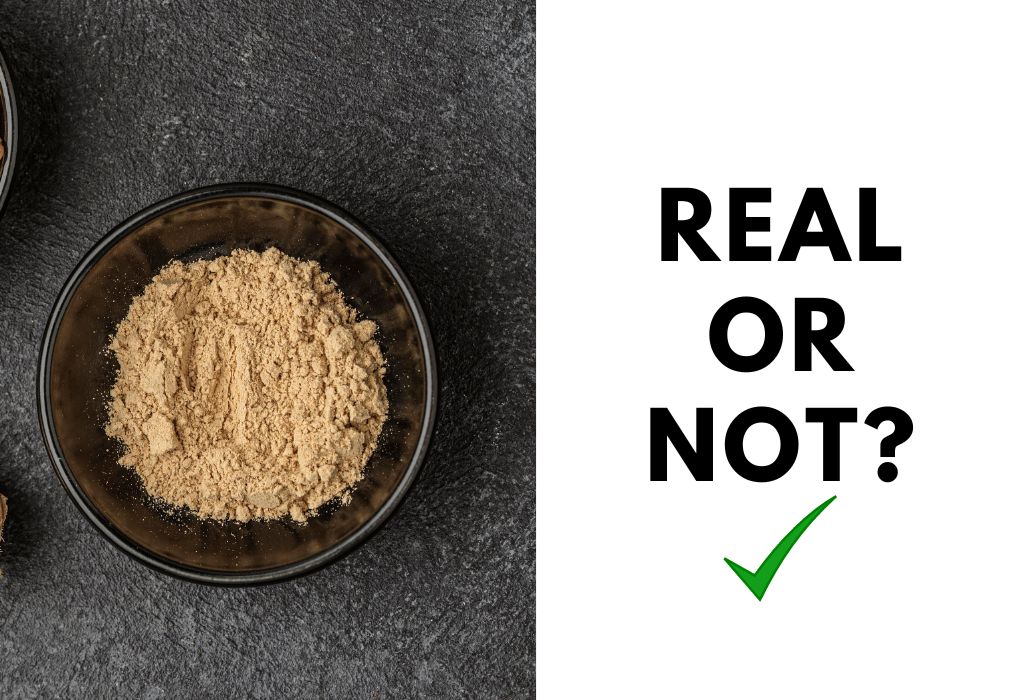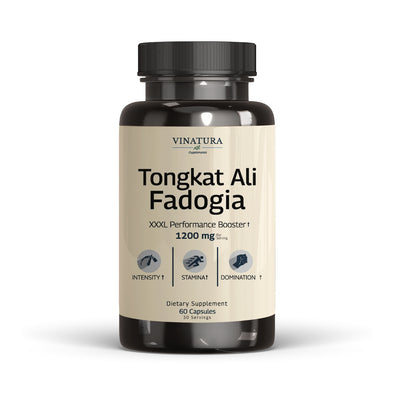
How To Tell If Tongkat Ali Is Real? Common Tongkat Ali Scams
Tongkat Ali, a medicinal herb native to Southeast Asia, is lauded for its numerous health benefits. However, as its popularity has soared, so has the proliferation of counterfeit products in the market. This raises an important question: How to tell if Tongkat Ali is real? This article will serve as a guide, shedding light on common Tongkat Ali scams and providing insights on how to authenticate this potent herb.
Before exploring further, please read the disclaimer located at the end of this webpage.
Key Takeaways
- The best method to evaluate Tongkat Ali extract is based on its color and taste.
- The Laboratory Testing Method is the most accurate assessment method but is only used in laboratories by manufacturers or third parties.
- Genuine Tongkat Ali extract has a distinctive bitter taste with a pronounced aftertaste.
- Tongkat Ali is light brown, not dark brown. Other ways to evaluate Tongkat Ali include solubility, texture, and moisture absorption capacity.
- Some common scams regarding Tongkat Ali supplements include mixing impurities, counterfeiting, and deceptive use of "Pure Tongkat Ali" labeling.
How To Tell If Tongkat Ali Is Real?
To determine the authenticity of Tongkat Ali, the most effective method is by assessing its taste. Other important factors to consider include laboratory testing, water solubility testing, moisture absorption testing, and color evaluation, among others.
Laboratory Testing Method:
This method is considered the most reliable and accurate way to test components of a trustworthy product. Various laboratory techniques are employed to analyze Tongkat Ali samples, such as High-Resolution Melting (HRM) analysis combined with DNA barcoding (Bar-HRM), as well as DNA barcoding and High-Performance Liquid Chromatography (HPLC) analysis.
These techniques have been utilized in studies to determine the authenticity of Tongkat Ali extracts.
For example, Nur Fadhila Fadzil and colleagues employed HRM analysis combined with DNA barcoding to assess the purity of Eurycoma longifolia. The research concluded that this combination is a rapid and highly sensitive technique for detecting adulterants in commercial herbal products containing Eurycoma longifolia.
Similarly, Bashir Mohammed Abubakar and colleagues evaluated the purity of Tongkat Ali using DNA barcoding and HPLC analysis. This study utilized DNA barcoding as a screening step for raw material testing.
The combination of both methods provides comprehensive information about the safety and effectiveness of the herbal medicinal product.
While laboratory evaluation methods are reliable and accurate, not all users have the means to perform them. Most assessment claims are made by manufacturers, third parties, or through scientific research.
Unfortunately, not all manufacturers accurately disclose the composition ratios of Tongkat Ali products. Therefore, it is crucial to know how to differentiate between genuine and counterfeit Tongkat Ali and assess the quality of the product.

Evaluation Through The Taste of Tongkat Ali:
Tongkat Ali possesses a distinct and robust bitterness, which can pose a challenge for those unacquainted with its flavor.
The exact degree of this bitterness remains subjective, as some describe it as earthy and difficult to consume, while others note a lingering bitterness accompanied by a pronounced aftertaste.
The bitterness of Tongkat Ali can be attributed to the presence of quassinoid compounds, renowned as some of the most bitter substances found in nature.
Evaluation Through Product Characteristics:

The most straightforward approach involves assessing various characteristics of the product, such as solubility, texture, color, and moisture absorption capacity. The evaluation of these traits is contingent upon the product's form.
Tongkat Ali powder can be easily diluted and dissolved in water. Some individuals rely on the color as an indicator of the powdered Tongkat Ali's quality. However, it's important to note that a dark color doesn't necessarily signify purity.
Authentic Tongkat Ali roots feature a light brown color at their core, while the root bark tends to be dark brown. Nonetheless, it's worth mentioning that high-concentration Tongkat Ali products may not always exhibit a darker color.
Manufacturers often introduce color variations among their products to facilitate differentiation and appeal to customers.
Furthermore, despite the brown color of Tongkat Ali roots, its extract appears transparent. The final color of the product also depends on the additional ingredients combined such as coffee, Fadogia Agresstive or Ashwagandha and Tongkat ali.
Common Tongkat Ali Scams And Tricks
Due to the widespread belief in the beneficial effects of Tongkat Ali, numerous manufacturers and individuals are employing deceptive tactics and scams to lure customers. It is important to be aware of common scams, including:
Mixing Similar Substances: Some manufacturers incorporate powders with similar colors and textures, which may not be Tongkat Ali, without providing clear disclosure.
However, it is worth noting that reputable entities may transparently combine ingredients to enhance efficacy or provide complementary benefits. For instance, Tongkat Ali can be combined with other herbs like Fadogia Agrestis or Ashwagandha, or even with coffee.
Deceptive Use of "Pure Tongkat Ali" Labeling: Products labeled as "Pure Tongkat Ali" may contain parts of the Tongkat Ali plant other than its roots. While technically accurate, users often assume that products labeled as Tongkat Ali are solely derived from its roots, which are believed to offer significant benefits. Some products may use other plant parts, leading to misleading marketing practices.
It is crucial for consumers to exercise vigilance and knowledge when purchasing Tongkat Ali products to avoid falling victim to these scams and tricks. By checking for transparency in ingredient disclosure and understanding the potential combinations that can enhance effects, users can make more informed choices.
Common Tips When Looking For Genuine Tongkat Ali Products
Tips for Finding Authentic Tongkat Ali Products:
1. Review Third-Party Safety and Quality Certifications: Genuine Tongkat Ali products are transparent about their laboratory test results from trusted third-party entities. These certifications ensure authenticity and reliability.
2. Check Tongkat Ali Content and Ratios: As mentioned earlier, some manufacturers deceive consumers by blending various substances without clearly stating the component ratios. This misconception can lead people to believe that all products labeled as Tongkat Ali are pure. Verify the ingredient list for clarity.
3. Watch Product Review Videos: Product review videos on reputable YouTube channels are reliable sources of information, as they often provide significant experience using and evaluating these products.
However, it's important to not solely rely on these reviews, as some individuals may review products for promotional purposes. A helpful tip is to read user comments under the review video. If the YouTuber's claims seem exaggerated, the audience often discusses it.
4. Read Genuine Customer Reviews: In addition to watching video reviews and comments, explore reviews from actual users on e-commerce platforms and discussion forums to gain a broader perspective.
5. Purchase from Trusted Brands: While it may seem obvious, selecting Tongkat Ali or any other quality product requires choosing from trustworthy brands. Consider two key factors: transparency and popularity.
A reputable brand should provide clear information, including licenses, ingredients, and third-party certifications. Also, look for brands that are widely recognized and used by many consumers.
6. Avoid Brands with Exaggerated Claims: Steer clear of brands that make overly ambitious promises regarding the effectiveness of Tongkat Ali.
While Tongkat Ali has been recognized in studies and user reports for its effectiveness, it's important to remember that it is a dietary supplement and not a medicinal cure. Be cautious of brands that overstate its potential benefits.

By following these tips, you can make more informed decisions when seeking genuine Tongkat Ali products and avoid falling victim to scams or low-quality items.
Frequently Asked Questions
What Is The Natural Form of Tongkat Ali?
The root of the Tongkat Ali tree is the natural form often praised for its health benefits. After being harvested, the roots are commonly dried and finely ground into a powder, or extracted to create a liquid form. This process preserves its beneficial properties for consumption.
Which Color of Tongkat Ali Is Considered The Most Effective?
The optimal quality Tongkat Ali is often characterized by a light brown hue. This color is indicative of the core of the root, which contains the highest concentration of beneficial compounds within the plant. However, it is important to acknowledge that effectiveness should not be solely determined by color, as processing techniques and additional ingredients may impact the final hue.
Which Type of Tongkat Ali Is Recommended As The Best Option?
Although Tongkat Ali in its natural form is often considered the purest, the extracted and safety-certified version is equally genuine. This is due to the inclusion of beneficial components like quassinoids and alkaloids.
Conclusion
Tongkat Ali, a popular herbal supplement, boasts numerous health benefits, but it has become a prime target for scams and deceitful practices. As consumers, it is crucial for us to be well-informed and remain vigilant in order to avoid falling prey to these fraudulent schemes. While this plant undoubtedly provides significant health advantages, it is important to remember that it is a supplement, not a cure, and should be used responsibly as part of a balanced lifestyle.
References
- [1] Nur Fadhila Fadzil, Wagiran, A., Faezah Mohd Salleh, Abdullah, S., & Nur. (2018). Authenticity Testing and Detection of Eurycoma longifolia in Commercial Herbal Products Using Bar-High Resolution Melting Analysis. Genes, 9(8), 408–408. https://doi.org/10.3390/genes9080408
- [2] Assessing product adulteration of Eurycoma longifolia (Tongkat Ali) herbal medicinal product using DNA barcoding and HPLC analysis. (2018). Pharmaceutical Biology. https://doi.org/10.1080//13880209.2018.1479869
- [3] Talbott, S., Talbott, J. A., George, A., & Pugh, M. (2013). Effect of Tongkat Ali on stress hormones and psychological mood state in moderately stressed subjects. Journal of the International Society of Sports Nutrition, 10(1). https://doi.org/10.1186/1550-2783-10-28
Author

Product Disclaimer
Including an ingredient or study does not evaluate, endorse, or recommend any Vinatura product or any third-party product. Some ingredients discussed may not be used in any Vinatura product.
The content of the articles has not been evaluated by the Food and Drug Administration (FDA) and is not intended to promote or endorse any specific product. Any products sold on this website are not intended to diagnose, treat, cure, or prevent any disease.
Opinions and Endorsements
Any claims, statements, or opinions expressed in the articles are those of the author(s) and do not necessarily reflect the views or opinions of the manufacturers of the dietary supplement products. The products sold on this website are separate from the content of the articles and are not directly endorsed or associated with the information presented here.
Liability Disclaimer
The author(s) of the articles, website, and manufacturers of the dietary supplement products do not assume any liability for any potential consequences arising from the use of the information provided in the articles. Ingredient effects, dosages, and safety vary by individual, formulation, and context; some ingredients interact with medications or may be unsuitable during pregnancy or lactation. It is recommended that individuals consult with a qualified healthcare professional before making any dietary or lifestyle changes, including the use of dietary supplements.
Product Usage
Please refer to the product labels and packaging for specific usage instructions and guidelines for the dietary supplement products sold on this website.
Customer Support
For any concerns or questions regarding the dietary supplement products, please contact our customer support team, who will be more than happy to assist you.






Leave a Comment
Be the first to comment.
What do you think?